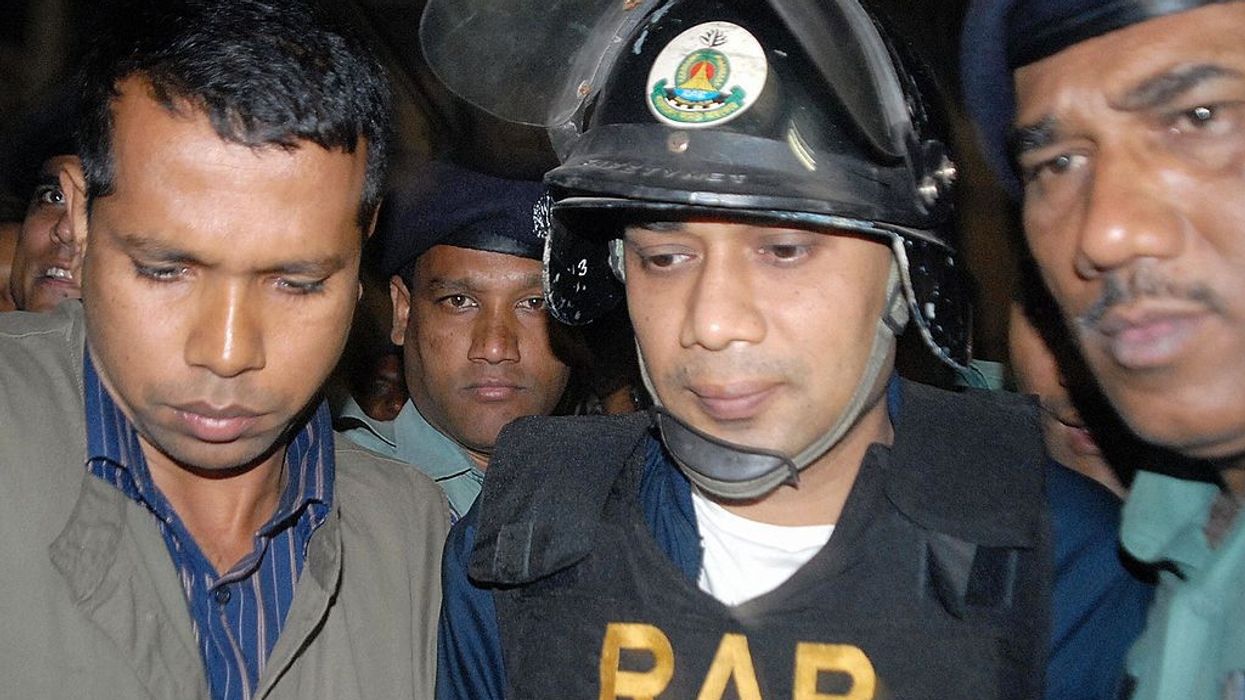BANGLADESH has sought an extradition treaty with the UK, weeks after a court in the south Asian nation sentenced its exiled opposition leader in a money laundering case.
Earlier this month, Tarique Rahman, 55, acting chairman of the Bangladesh Nationalist Party (BNP), was handed a nine-year prison term and his wife, Zubaida was given three years.
Rahman is based in London.
Bangladesh’s parliamentary affairs minister Anisul Huq said his country will be looking at bringing back money which had been illegally taken out of the country.
"We have held talks with the British High Commissioner to Dhaka and sought an extradition treaty. The British government is expected to revert to our request," said Huq, who was in Kolkata for a G20 ministerial meeting on anti-corruption.
An extradition treaty allows countries to send back fugitives from justice to each other's territory.
Rahman, the son of slain former Bangladesh president General Ziaur Rahman and former prime minister Khaleda Zia, was allowed to leave for London after signing a conduct bond on being arrested for graft by an Army-backed caretaker government in 2008.
"We would also like the money laundered by him abroad to be extradited," Huq, a UK-trained lawyer, said.
"The Awami League government did not arrest Rahman. He was arrested by a caretaker government which was backed by the Army. An anti-corruption commission probed the cases against him and submitted the chargesheet on the basis of which the judiciary has passed sentences," the minister pointed out, referring to charges of bias in the prosecution of the opposition figure.
Besides facing judicial proceedings in several other graft and money laundering cases, Rahman is also accused of being the mastermind of a grenade attack on current prime minister Sheikh Hasina's rally in 2004 which killed scores of people.
The latest sentencing has come amid BNP protest rallies calling on Hasina to step down and hold elections under a caretaker government - a demand which the Awami League government rejected.
The government is likely to go in for an election before January-end next year as its term in office ends then.
Though the opposition led by BNP has been in disarray ever since Khaleda Zia, was jailed on corruption charges in 2018, it is expected to mount a credible challenge to Awami League in the forthcoming election.
(With inputs from PTI)
Bangladesh seeks extradition treaty with Britain
Move comes after London-based opposition leader Tarique Rahman was sentenced in a graft case




